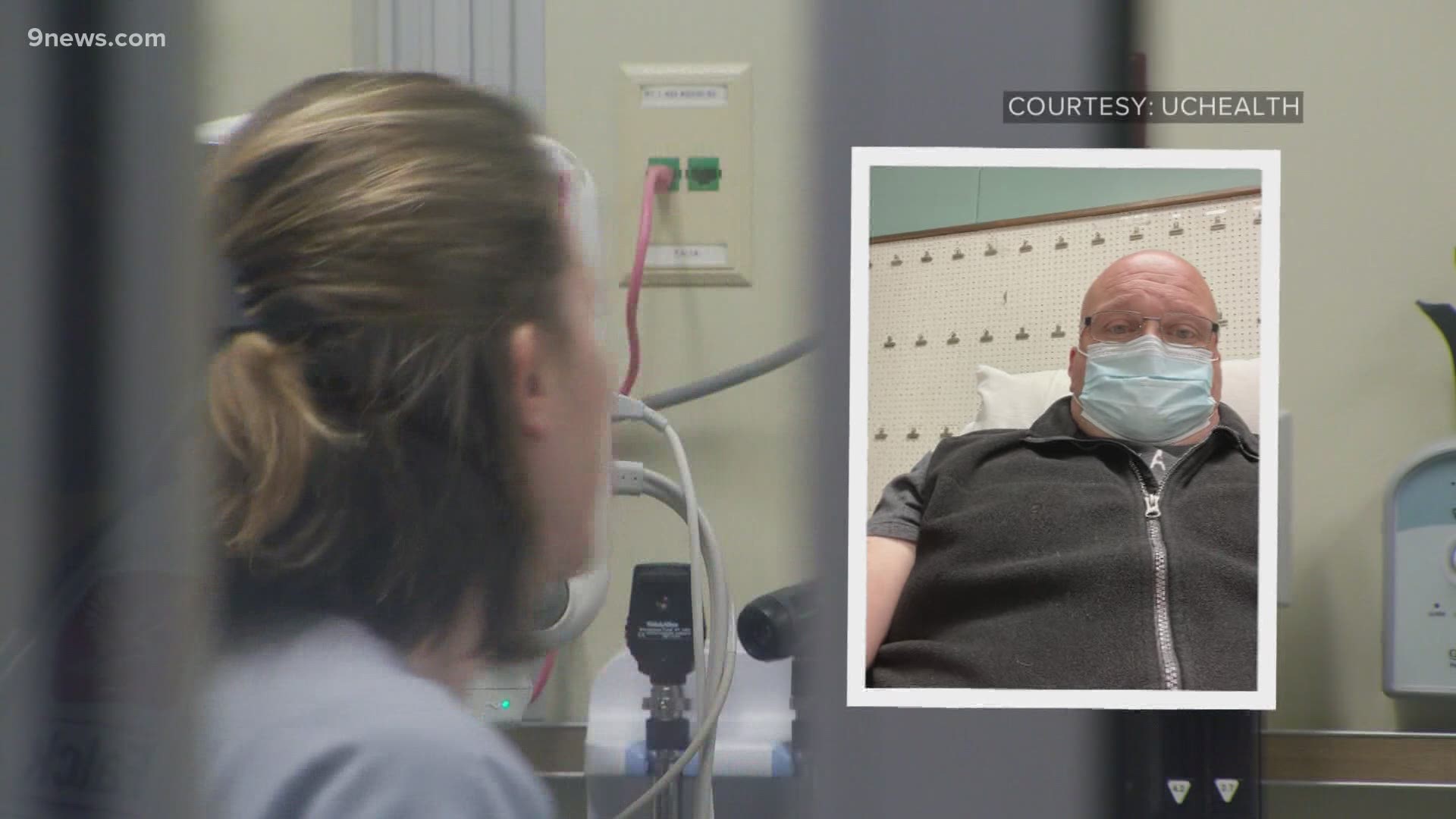DENVER — Jeff Wittenauer started feeling sick at the end of November, and by Dec. 1, he tested positive for COVID-19.
“I think disbelief was probably my first inclination,” Wittenauer told 9NEWS “We were being so cautious and protective of our home and the people that come and go.”
Both he and his girlfriend tested positive, without knowing where they got the virus.
At first, Wittenauer felt like he had allergies, but his symptoms quickly progressed.
“My fever would spike up to about 102, and it would stay there all night long …I just couldn't function,” Wittenauer said.
Adding to the stress, Wittenauer said he has a kidney disorder, and he lives with his children, two of whom are special needs.
One of their nurses told him about an experimental monoclonal antibody treatment called Bamlanivimab, or Bam Bam for short.
“That's when I called my doctor and said, ‘hey, what is this Bam Bam stuff that people have called a lot of funny names?’ He had heard about it, but didn’t know the deal with it,” Wittenauer said.
After some research, Bamlanivimab seemed like a good option.
RELATED: Some Colorado hospitals using lottery system to pick patients for experimental COVID-19 treatment
Wittenauer went to the emergency room, where a doctor told him he was a good candidate.
“By 8 o'clock the next morning, I woke up, and I was a different human being. I was making jokes and doing things that I normally would … to have an infusion that literally within a few hours just flipped my body was miraculous.”
The U.S. Food and Drug Administration (FDA) issued an Emergency Use Authorization for Bamlanivimab in November.
“While the safety and effectiveness of this investigational therapy continues to be evaluated, Bamlanivimab was shown in clinical trials to reduce COVID-19-related hospitalization or emergency room visits in patients at high risk for disease progression within 28 days after treatment when compared to placebo,” according to a release on the FDA’s website.
With a limited supply of the experimental COVID-19 treatment, Colorado hospitals are using a lottery system to decide who will get a dose.
“Typically, the patients who qualify have to meet all of the requirements, which are comorbidities like diabetes, or heart disease, or over the age of 65,” Dr. Michelle Barron, senior medical director of infection prevention at UCHealth, told 9NEWS.
Patients must have mild to moderate COVID-19 symptoms for no more than 10 days, and in most cases, are considered high-risk for being hospitalized, according to Barron.
Every week, the US Department of Health and Human Services hands out doses, depending on a state’s COVID numbers.
Colorado’s Department of Public Health said it got 1,130 doses on Dec. 2 and another 960 on Dec. 9, a small amount for a state that has daily covid numbers in the thousands.
“It’s supply chain, honestly,” Chief Medical Officer at UChealth University of Colorado Hospital Dr. Jean Kutner said.
She said it may take a while for production of the antibodies to ramp up, and for more data to be gathered on efficacy.
“I’m really happy that this patient [Wittenauer] has done well, and we have heard stories like that, but that’s also why we do research and that’s why the studies are continuing to make sure we have a large enough population to really make sure we know what the benefits are,” Kutner said.
SUGGESTED VIDEOS: COVID-19 Coronavirus

